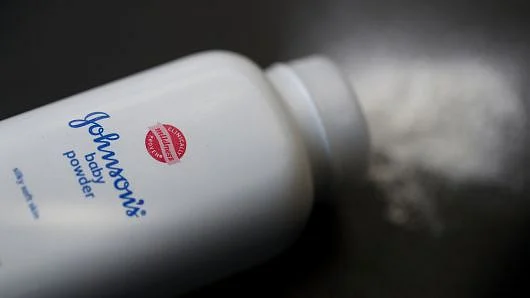World
Johnson & Johnson knew for decades that its baby powder has asbestos
More than 9,000 complainants have accused that its baby powder products contain asbestos and caused ovarian and other cancers

International pharmaceutical firm Johnson & Johnson had known for decades that its baby powder contained asbestos, read an investigation by news agency Reuters. The investigation comes in the backdrop of the multiple lawsuits that the company is currently facing. More than 9,000 plaintiffs have accused that its baby powder products contain asbestos causing ovarian and other cancers.
In a major setback to Johnson & Johnson, St Louis jury in July, 2018 had awarded nearly $4.7 billion in total damages to 22 women and their families after they claimed asbestos in the Johnson & Johnson talcum powder contributed to their ovarian cancer in the first ever case against the company that focused on asbestos found in the talcum powder.
The jury had announced the $4.14 billion award in punitive damages shortly after awarding $550 million in compensatory damages after a six-week trial in St Louis Circuit Court. J&J had vowed to file an appeal against the judgement.
Published: undefined
“Plaintiffs’ attorneys out for personal financial gain are distorting historical documents and intentionally creating confusion in the courtroom and in the media,” Ernie Knewitz, J&J’s vice president of global media relations, wrote in an emailed response to Reuters’ findings
An investigation conducted based on examination of documents, deposition and trial testimony conducted by Reuters, shows that “from at least 1971 to the early 2000s, the company’s raw talc and finished powders sometimes tested positive for small amounts of asbestos, and that company executives, mine managers, scientists, doctors and lawyers fretted over the problem and how to address it while failing to disclose it to the regulators or the public.”
The documents also indicate successful attempts to influence US regulators’ plans to limit asbestos in cosmetic talc products and scientific research on the health effects of talc, the report states.
The report also states that J&J has denied the claim. Baby powder was asbestos-free, the company states according to the report.
“Plaintiffs’ attorneys out for personal financial gain are distorting historical documents and intentionally creating confusion in the courtroom and in the media,” Ernie Knewitz, J&J’s vice president of global media relations, wrote in an emailed response to Reuters’ findings.
“This is all a calculated attempt to distract from the fact that thousands of independent tests prove our talc does not contain asbestos or cause cancer. Any suggestion that Johnson & Johnson knew or hid information about the safety of talc is false.”
Shares of Johnson & Johnson tumbled 12% on Friday by 1714 GMT.
Published: undefined
Follow us on: Facebook, Twitter, Google News, Instagram
Join our official telegram channel (@nationalherald) and stay updated with the latest headlines
Published: undefined